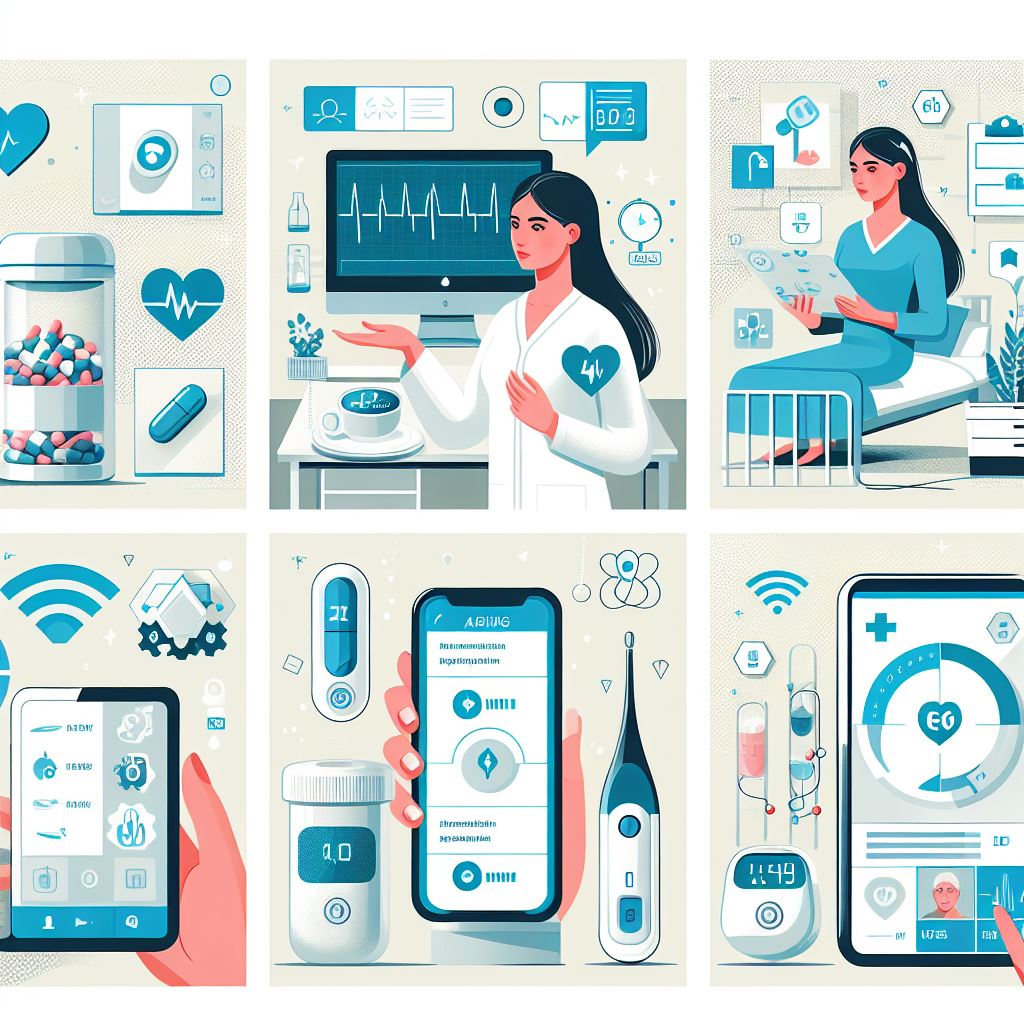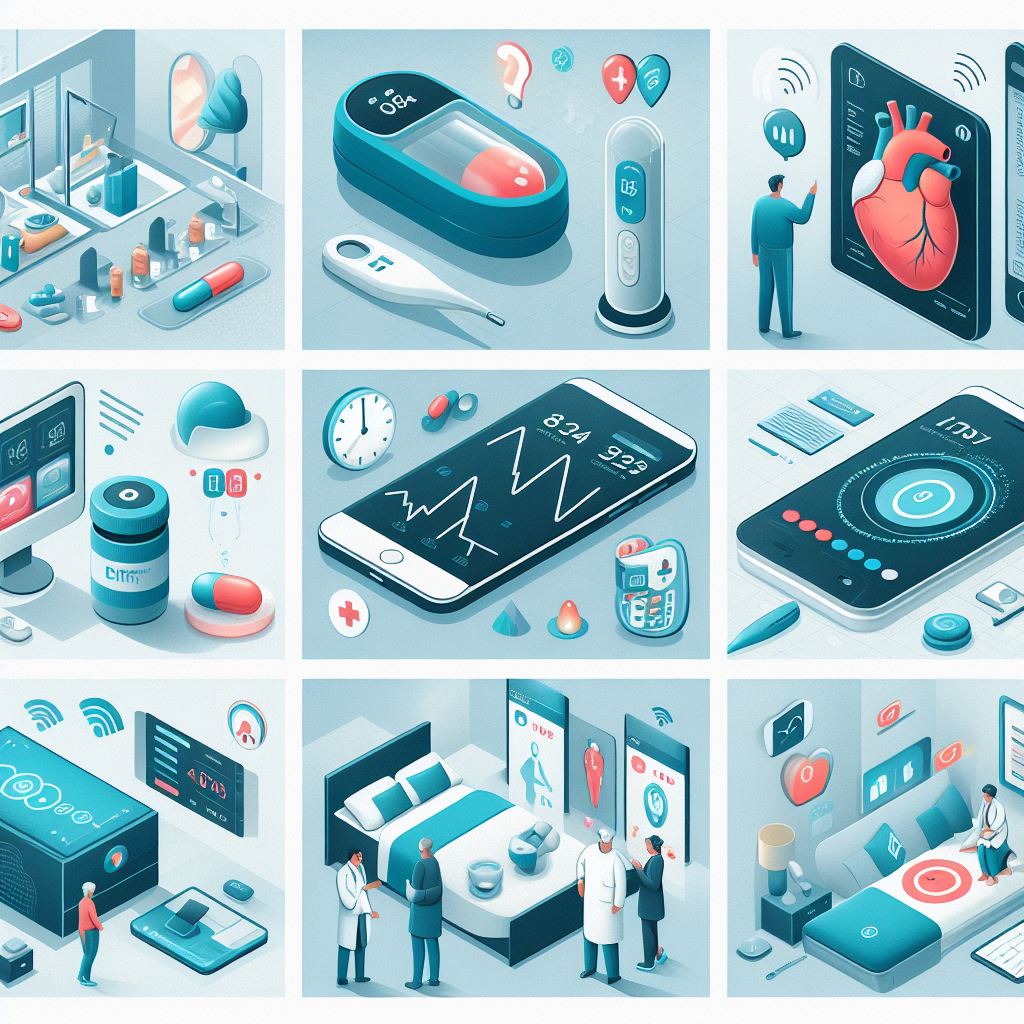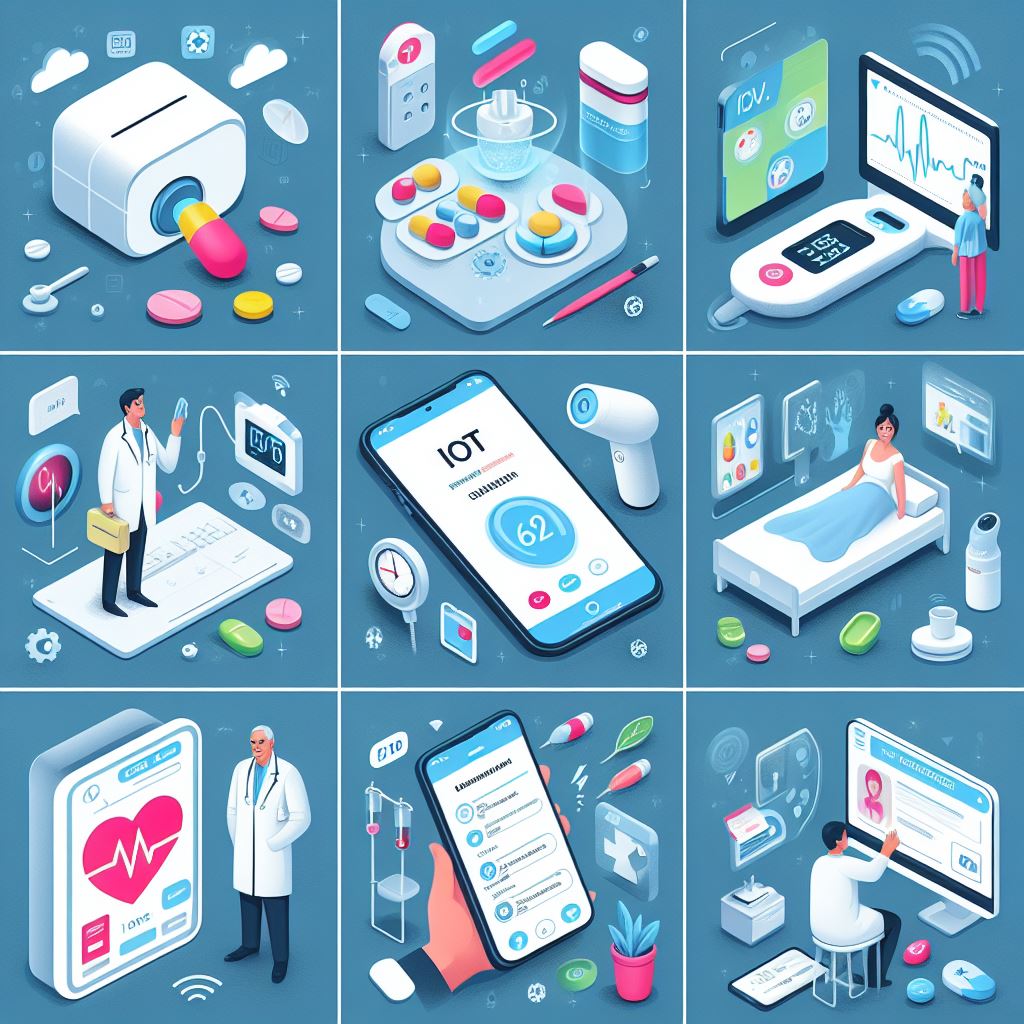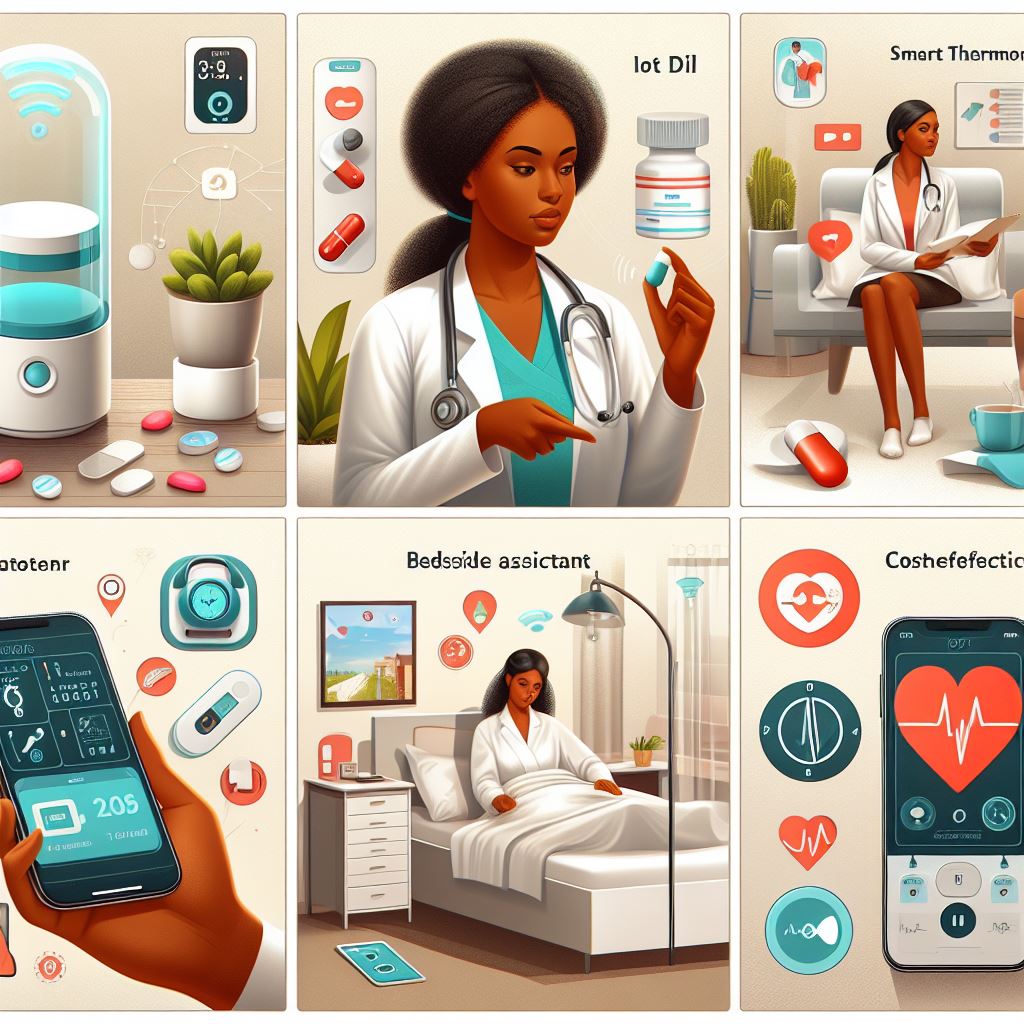The Internet of Things (IoT) is transforming healthcare through connected devices and smart infrastructure. Implementing IoT in healthcare can lead to improved patient outcomes, lower costs, and enable new models of care.
Key Applications of IoT in Healthcare
IoT offers many use cases across healthcare facilities, remote patient monitoring, medical devices, and more.
Connected Infrastructure for Smart Health Facilities
At Hospital X, IoT sensors and networks allowed tracking of wheelchairs and defibrillators. This reduced time wasted hunting for essential equipment by over 80% improving response times.

Other examples include smart HVAC systems for efficient climate control and inventory management of pharmaceuticals using IoT tags. Such applications optimize hospital operations.
Remote Patient Monitoring
James, a heart disease patient, used IoT-enabled wearables to share health metrics with his doctor daily. When readings were abnormal, his doctor intervened early, adjusting medications and avoiding a hospital visit.
Devices used include fitness trackers, cardiac monitors, blood pressure cuffs, and glucose meters. They allow patients to engage in their healthcare.
Connected Medical Devices
Networked devices like ECG machines, respirators, and infusion pumps integrated with IoT improve diagnostics and treatment. At Clinica Y, IoT infusion pumps reduced dosage errors by 90%, enabling personalized care.
Benefits of Implementing IoT in Healthcare
Deploying IoT-enabled infrastructure provides many advantages:

- Patient empowerment: James’ story shows how IoT allows patients to manage their health proactively. Widespread adoption of remote monitoring and telehealth can accelerate this shift.
- Improved outcomes and lower costs: Early intervention facilitated by IoT monitoring reduces hospital visits. McKinsey estimates a potential cost saving of $300 billion in the US alone.
- Informed decision-making: Data analytics on IoT data enables targeted treatment plans, predictive modeling, and better decisions.
Challenges in Deploying Healthcare IoT
However, ethical implementation of IoT requires addressing concerns like:
- Data privacy: Healthcare data is susceptible. Steps must be taken to anonymize data and implement access control.
- Algorithmic bias: AI applied to IoT data for diagnosis must be tested extensively to avoid gender, racial, or other biases.
- Digital divide: There are concerns about inequitable access to IoT-based healthcare. Policy measures are needed to promote universal affordable coverage.
Realizing the Full Potential of Healthcare IoT

As devices get smaller and more powerful, IoT will likely transform medicine through innovations like:
- AI-enabled diagnostics and genomics-based personalized medicine
- Widespread remote monitoring and telehealth services
- Miniature sensors enabling diagnostics during a clinic visit
To fully realize the promise of IoT in healthcare, we need responsible implementation focused on ethical practices, inclusivity, and putting the patient first.
Conclusion
Healthcare IoT has incredible potential to enable proactive, connected, patient-centered care. To explore adopting IoT solutions, consider discussing use cases, costs, and measures to ensure privacy and responsible usage with providers.
